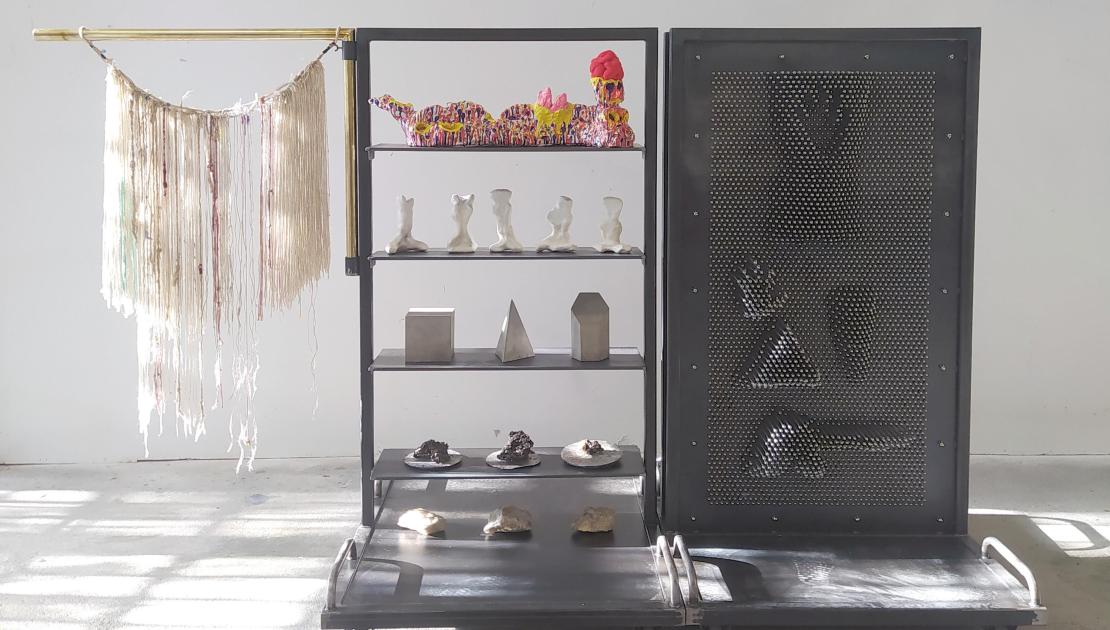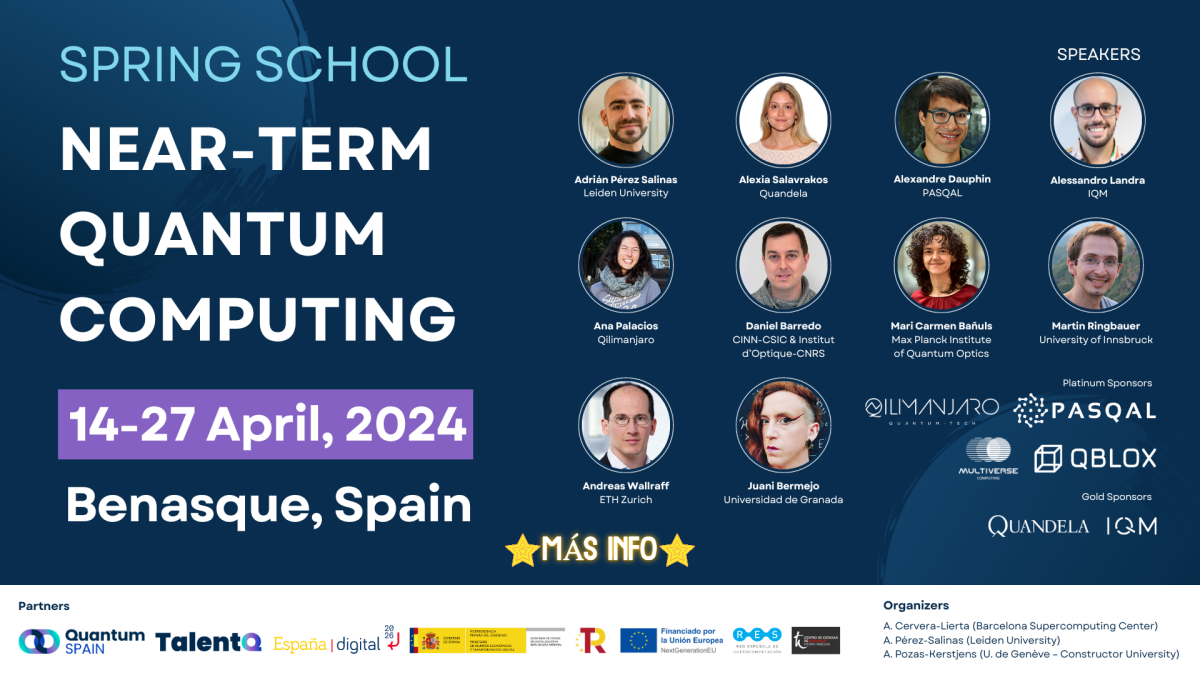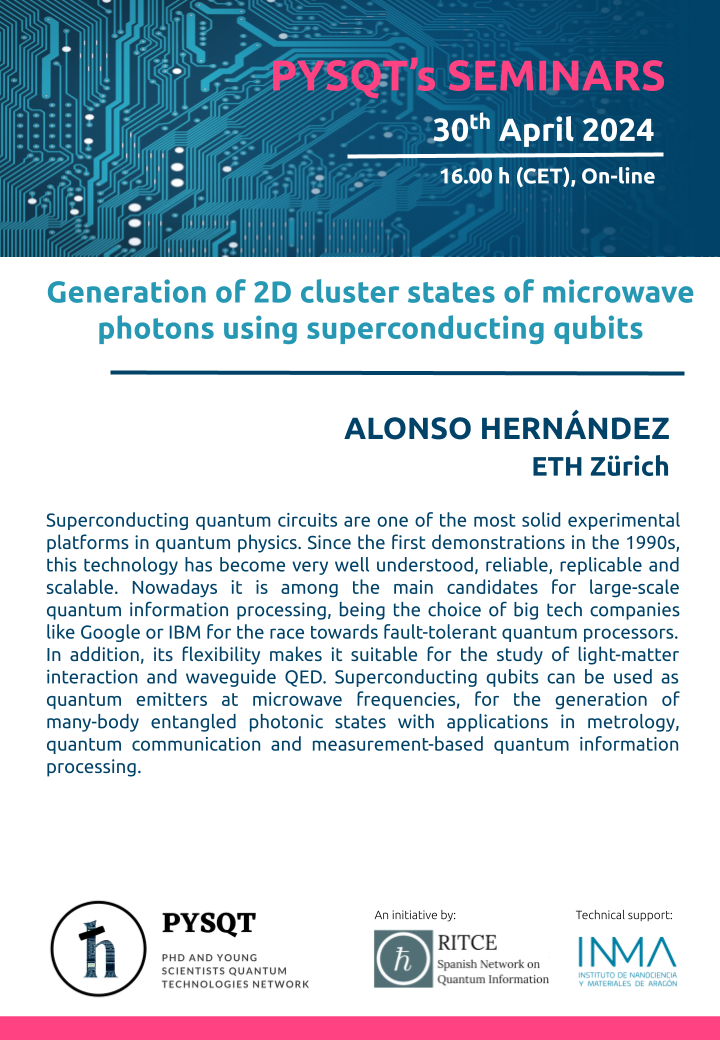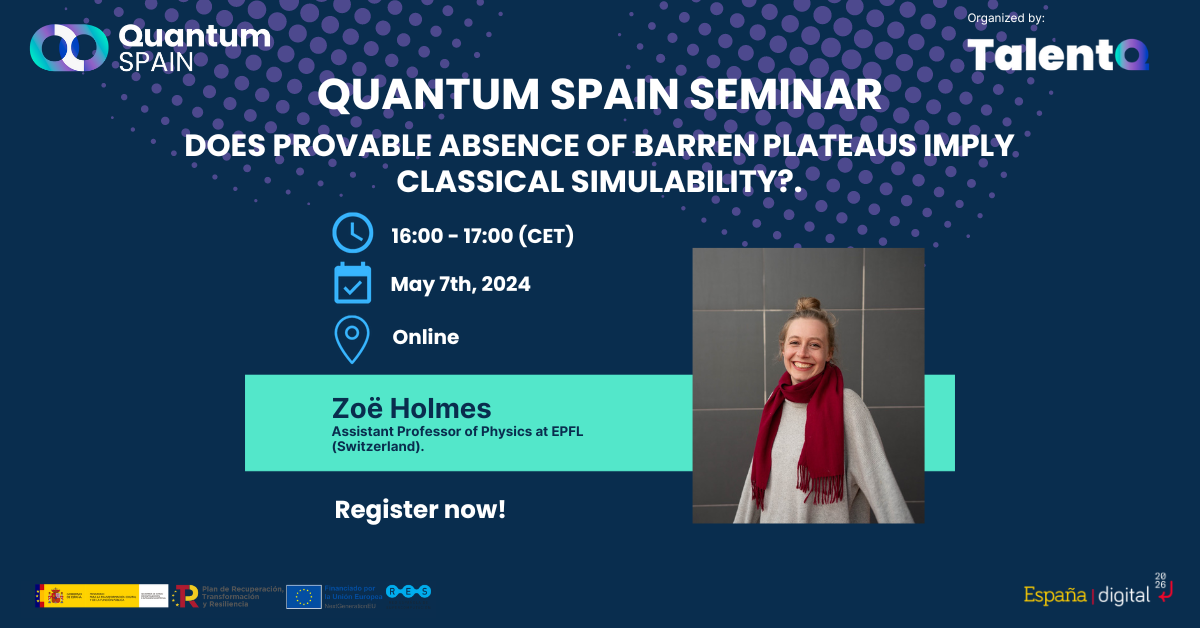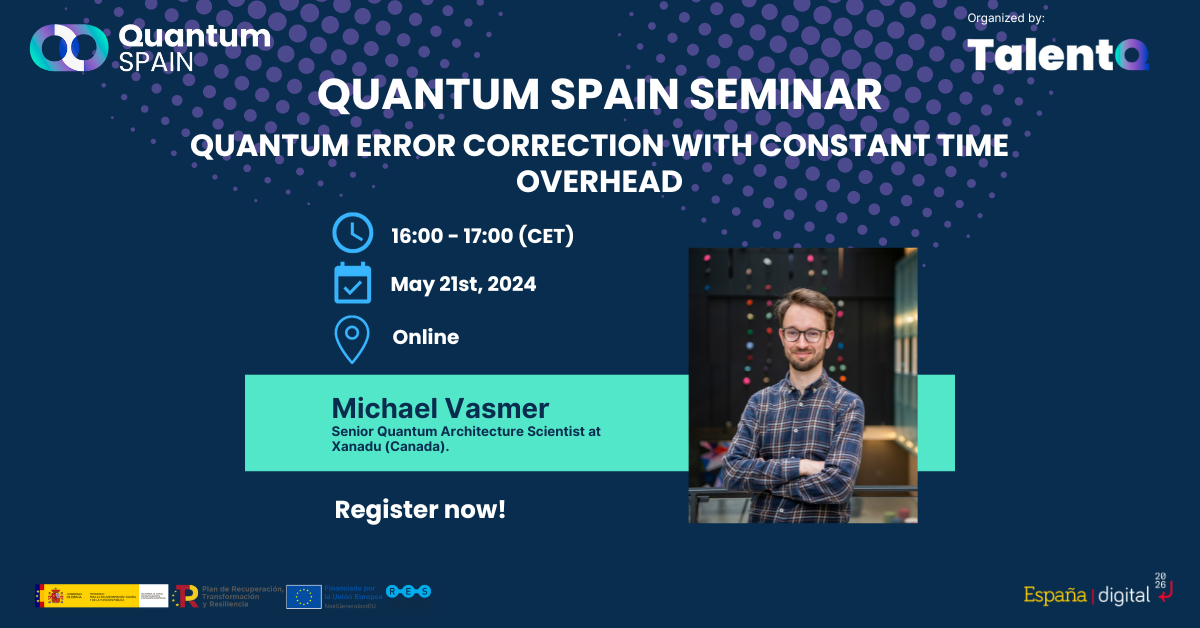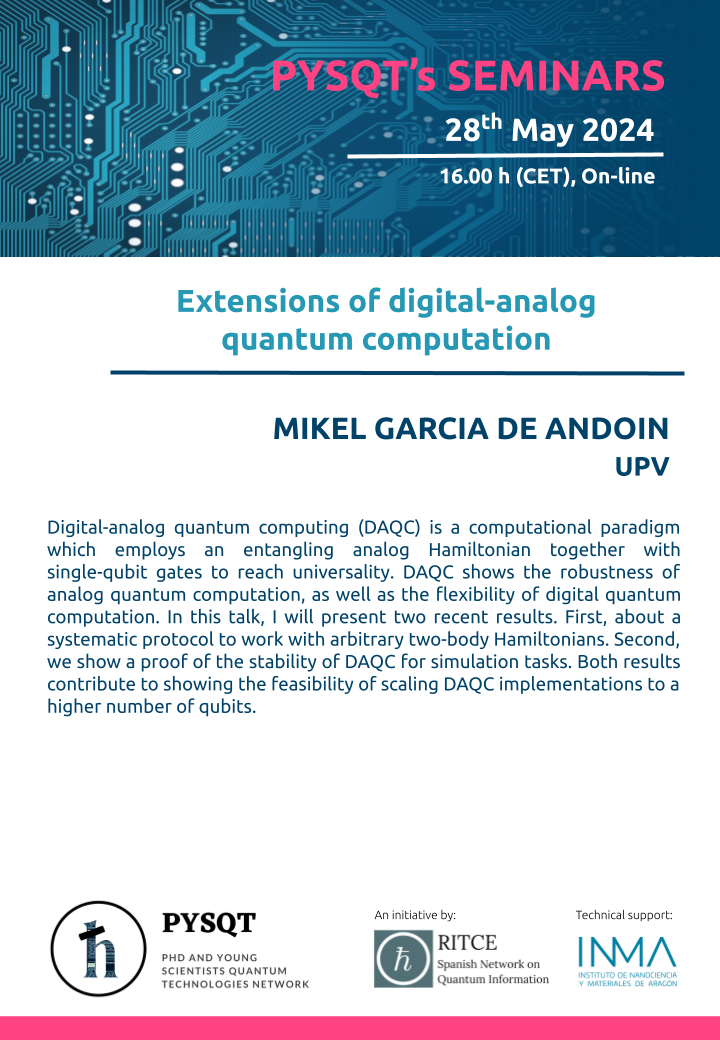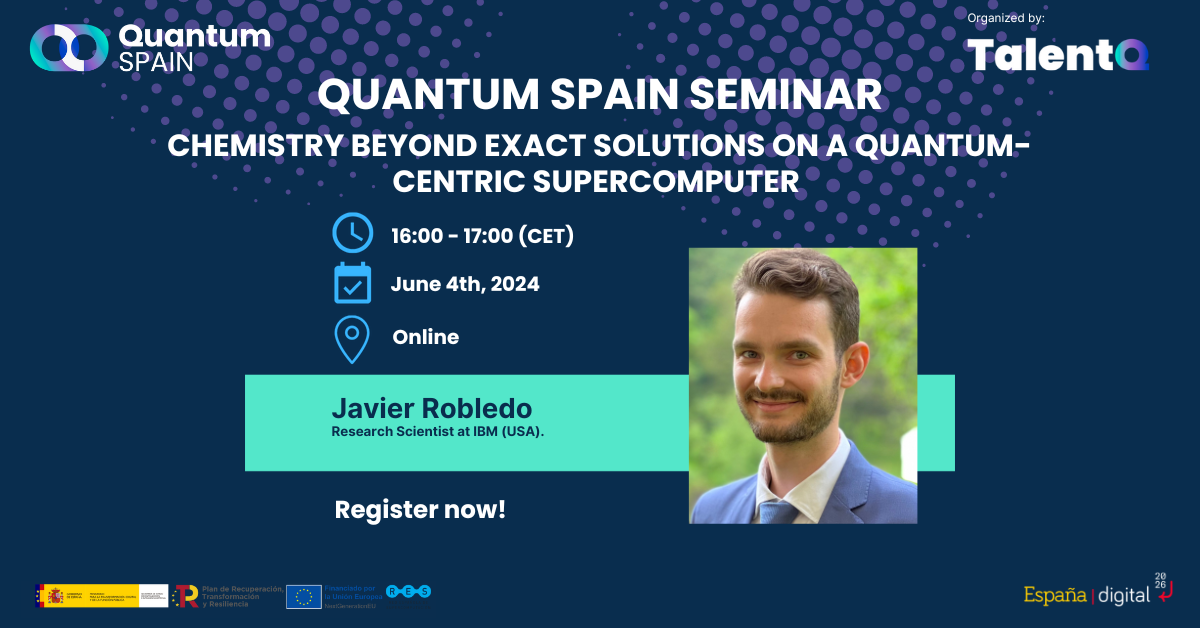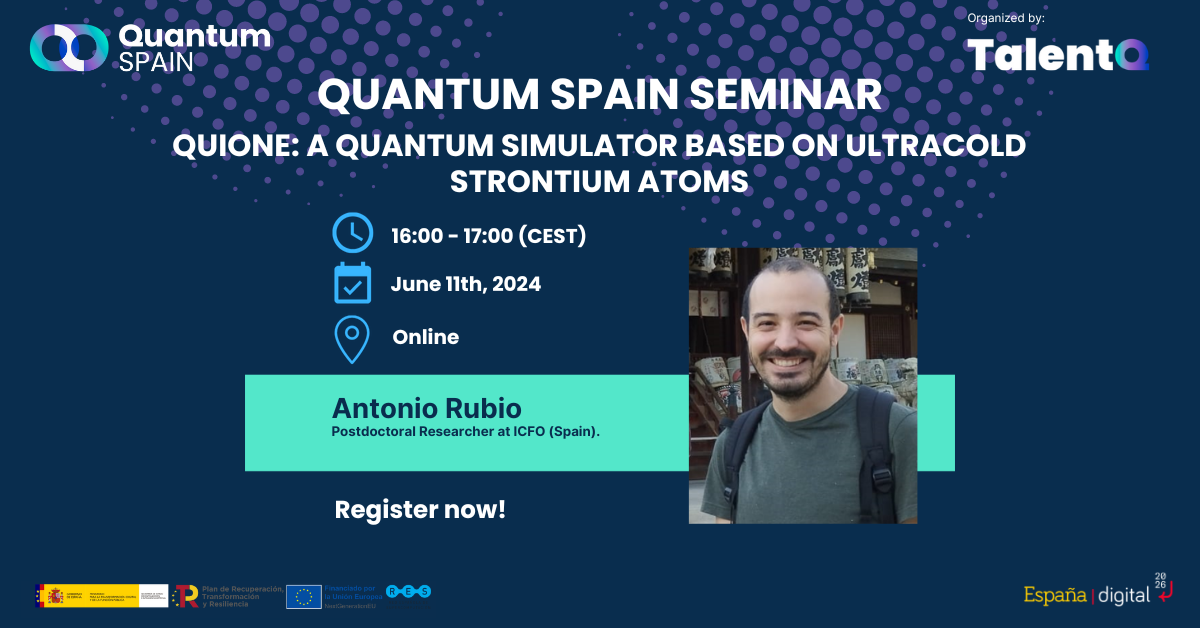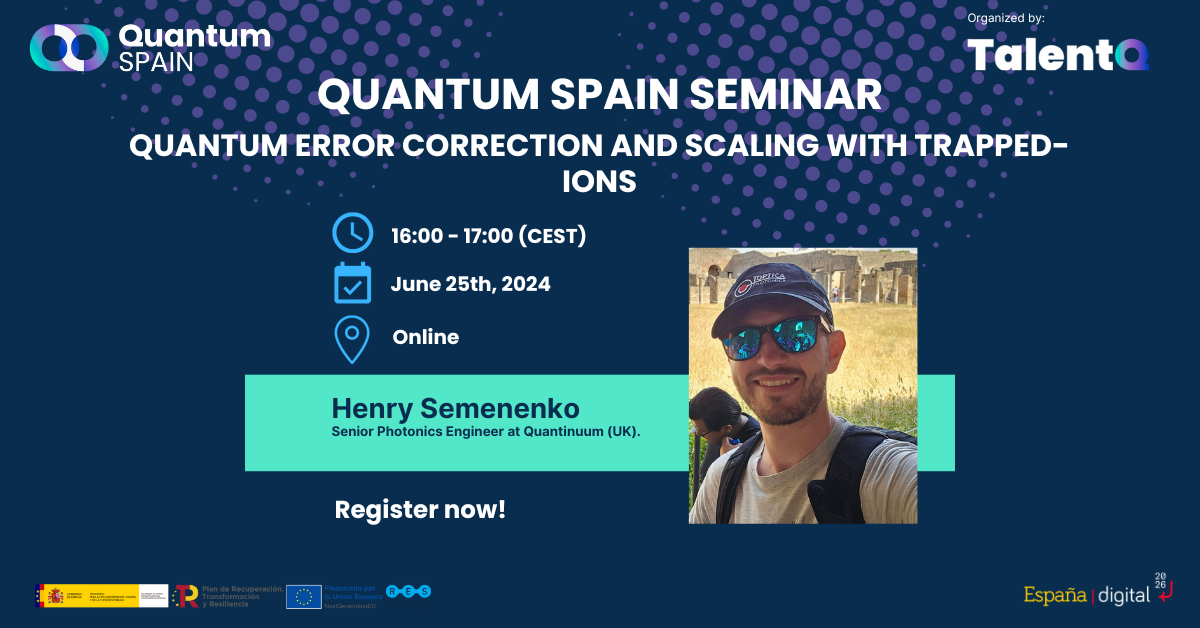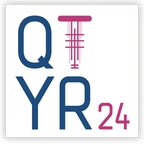WORLD QUANTUM DAY
CGAC Rúa Valle Inclán, 2, Santiago de Compostela, EspañaThe celebration of World Quantum Day aims to promote global understanding of quantum science and technology worldwide. The chosen date is a reference to the number 4.14, the first rounded digits of Planck's constant: 4.135667696×10–5 eV s = 0.000 000 000 000 000 004 135667696 electron volts seconds, a product of energy and time which […]


